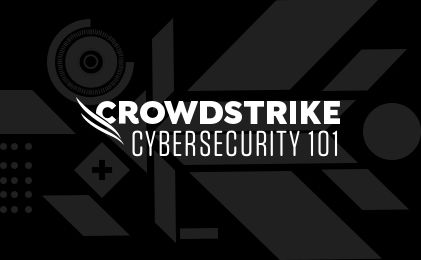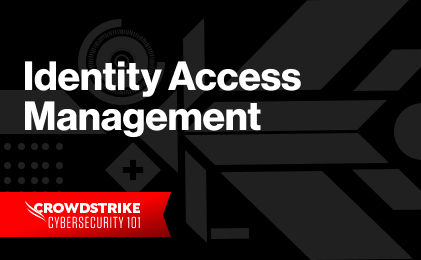ML and AI in identity security
Identity-based attacks continue to wreak havoc on organizations. According to the CrowdStrike 2024 Global Threat Report, a staggering 75% of initial access attacks are conducted without malware, indicating the use of valid credentials for unauthorized entry. Identity-driven attacks are so successful because they are extremely hard to detect. When an adversary gains access to a user's credentials, distinguishing between legitimate user activity and malicious intent becomes exceptionally challenging. This is where identity security steps in as an essential last line of defense for organizations.
Identity security safeguards all types of identities within the enterprise. Whether they are human or machine, operating on-premises or in hybrid environments, or possess regular or privileged access, the goal remains consistent: to detect and prevent identity-driven breaches.

The Complete Guide to Building an Identity Protection Strategy
Take the first step toward a resilient identity security posture and download the Complete Guide to Building an Identity Protection Strategy to protect your organization’s digital identity landscape today.
Download NowHow does AI play a role in identity security?
AI is increasingly being integrated into various aspects of cybersecurity to elevate threat detection, response capabilities, and overall resilience. Advanced AI algorithms are incredibly useful in anomaly detection, behavioral analytics, and pattern recognition to identify and mitigate cyber threats in real time. Additionally, the advent of generative AI (GenAI) allows cybersecurity professionals to predict future threats by discerning patterns and trends. This proactive approach empowers these professionals to anticipate and preemptively address potential threats, maximizing the value of their existing security tools.
In the domain of identity security, AI presents a promising pathway forward. By harnessing AI-driven identity security solutions, organizations can strengthen their defenses against identity-based attacks. These AI-powered solutions analyze authentication and identity activity, detecting anomalies and automatically responding to potential threats. Because weak or compromised credentials often serve as entry points for security breaches, GenAI can offer an additional layer of security.
Benefits of incorporating AI in identity security
In today's cyber battleground, adversaries are leveraging the speed and sophistication of AI to launch relentless attacks. Faced with this reality, 82% of Americans express deep concern over the nefarious potential of AI in identity theft — a testament to the urgency of the situation.
Amidst these challenges, a solution shines through: AI-powered identity security. Identity security tools that harness the power of machine learning (ML) and AI level the playing field. By tapping into vast datasets and employing advanced algorithms, AI-powered identity security provides many benefits:
Enhanced security
Leveraging innovative AI capabilities, identity security solutions offer enhanced protection by continuously monitoring user behavior and identifying anomalies indicative of potential threats. ML algorithms can detect suspicious activities, such as unauthorized access attempts or abnormal usage patterns. Using behavioral analysis to establish a baseline of normal activity, identity security solutions can rapidly identify deviations to enable proactive threat mitigation. This is where AI’s speed, accuracy, and efficiency can help strengthen an organization’s overall identity security posture.
Automated workflows
Integrating AI into identity security workflows not only simplifies tasks but boosts speed, helping organizations stay ahead of adversaries. By automating tedious tasks like provisioning, deprovisioning, password management, and role assignment, it lightens the load on security teams and expedites response times. Using natural language processing (NLP) and ML, AI-powered security tools can check user identities and carry out actions without needing constant oversight. This also means fewer mistakes and smoother user interactions.
Compliance
AI-enhanced identity security makes it easier for organizations to navigate compliance efforts with security and privacy regulations. By analyzing user behavior and access patterns, AI can enforce access controls, monitor for compliance violations, and generate comprehensive audit trails. This helps organizations adhere to data protection regulations such as the GDPR, HIPAA, and PCI DSS, minimizing the legal and financial risks associated with noncompliance. Because AI can learn from how users behave and tightly control access, organizations can meet compliance requirements with less hassle and more accuracy.
Improved visibility
AI enables organizations to gain deeper insights into identity-related activities across their digital estate, providing better visibility into potential security risks. By analyzing vast amounts of telemetry data, AI-powered identity security systems can generate dashboards that show key metrics on emerging threats, potential suspicious insider activity, and identity security vulnerabilities. This enhanced visibility empowers security teams to proactively adjust and optimize policies and processes to mitigate security incidents.
Enhanced analytics
AI-driven analytics capabilities enable organizations to extract actionable intelligence from identity-related data. By leveraging ML algorithms, organizations can identify patterns, trends, and anomalies in user behavior, facilitating early detection of security threats. Furthermore, AI-enhanced analytics empower security teams to conduct predictive analysis, anticipate future threats, and implement proactive security measures to effectively mitigate risks.

How AI Helps You Stop Modern Attacks
Listen to this CrowdCast to learn what exactly AI and ML do for you when it comes to cybersecurity and preventing breaches.
ListenChallenges in AI implementation for identity security
AI models rely heavily on the quality and bias-free nature of the data they're trained on. However, if the data is biased or skewed, the AI model may reflect these biases, potentially leading to inaccurate or inappropriate decisions. This can not only pose legal and ethical concerns but undermine the effectiveness of the identity security solution.
Additionally, as cybersecurity threats evolve and become more sophisticated, AI algorithms require diverse and up-to-date data to effectively detect and respond to emerging threats. Obtaining such a vast amount of high-quality data can be challenging in practice, particularly for smaller organizations with limited resources. In this context, partnering with a cybersecurity vendor equipped with extensive identity telemetry data on which to train their AI tools offers a strategic advantage.
AI best practices in identity security
Some of the most important best practices for the use of AI in identity security include:
- Adopt AI in phases: Identify use cases where AI can enhance your identity security. Start with a pilot project targeting a specific use case to identify any risks or limitations before scaling up. For example, you might begin with using AI to detect anomalous user behavior in access logs before expanding to more complex use cases such as real-time threat detection.
- Collect large datasets: Gather large datasets containing diverse and representative identity-related data to effectively train your AI models. This includes user authentication logs, access control lists, network traffic data, and any other relevant telemetry. The larger and more diverse the dataset, the better AI models can learn to detect patterns and anomalies in identity behavior.
- Leverage AI for threat correlation: Apply AI to uncover identity threats by correlating identity threat signals with endpoint and cloud data to predict attack paths. By analyzing user authentication logs alongside system logs and network traffic, AI can identify patterns indicative of potential threats, enabling proactive security measures.
- Develop a governance framework: Establish a governance framework to guide the ethical and responsible use of AI in identity security. This framework should outline policies and procedures for data collection, model training, deployment, and monitoring. It should also address privacy concerns, data protection regulations, and transparency in AI decision-making processes.
- Continuously monitor systems: Implement a robust monitoring mechanism to continuously track the performance of AI systems in identity security. This includes monitoring model accuracy, detecting drift in data distribution, and evaluating the effectiveness of AI-driven security measures. Regular reviews help ensure that AI systems remain effective and aligned with evolving security needs.
How CrowdStrike can help
CrowdStrike Falcon® Identity Threat Protection provides visibility for identity-based attacks and anomalies, comparing live traffic against behavior baselines and rules to detect attacks and lateral movement.
Powered by world-class AI, Falcon Identity Threat Protection detects identity threats in real time. Within Active Directory (AD), for example, Falcon Identity Threat Protection establishes a baseline of typical user behavior by analyzing authentication patterns and historical data. It uses advanced algorithms and ML technologies to automatically classify accounts and correlate them with potential AD attack paths or privilege escalations — threat vectors often concealed from AD operators.
With AI-powered identity security systems, organizations can enhance their cybersecurity efforts to detect security threats that traditional cybersecurity measures might not spot. The CrowdStrike Falcon® platform leverages real-time indicators of attack, threat intelligence, evolving adversary tradecraft, and enriched telemetry from across the enterprise to deliver hyper-accurate detections, automated protection, and remediation.
And with CrowdStrike® Charlotte AI™, a GenAI cybersecurity analyst, security teams gain invaluable insights and answers to their questions regarding identity threats and tactics. Charlotte AI boasts a revolutionary multi-model architecture that is constantly honed on trillions of daily events and top-tier threat intelligence. And it's fine-tuned with expert-driven context and anonymized data usage, ensuring unparalleled accuracy and relevance in threat detection and response.






